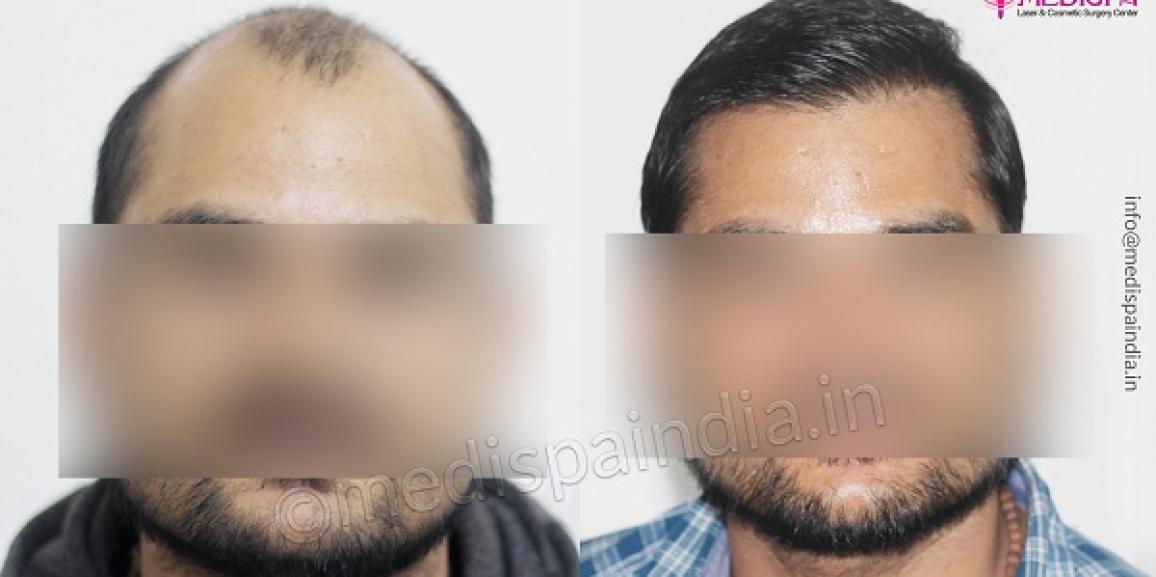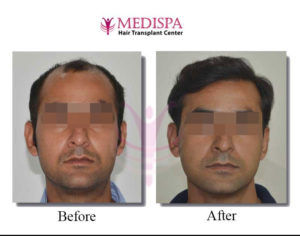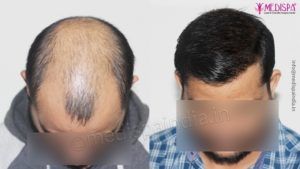
Do you find that you are losing hair?
You are not alone, despite popular belief!
The percentage of persons who are losing their hair is continuously increasing. Virtually everyone has dealt with hair loss at some point in their lives. However, it could be either transient or permanent. Only transitory hair loss is reversible on its own. It demands a nutritious diet. On the other side, permanent hair loss requires medical attention. Later in life, permanent hair loss is possible and cannot be reversed.
Nowadays, hair loss does not only afflict the elderly. It affects people of all ages. These days, the effect reaches even young adults in their twenties. More than ever, a long-term cure for hair loss is needed. It affects the standard of living of the younger generation.
Let’s investigate a few hair loss treatment possibilities.
Treatments for Hair Loss
These are a few of the hair loss remedies that are currently on the market.
- Medication: Hair loss can be treated with some drugs. These drugs are proven to slow down hair loss. They could encourage hair growth as well. They have adverse effects much like any other medication. They are thus not advised for continuous usage. Once you stop using medicine, the effects might be undone. The effects of the medications are therefore only momentary.
- PRP therapy: Individuals who are undergoing early-stage hair loss can benefit from this treatment. Your blood is used to make the PRP concentrate. You should anticipate quicker hair growth after this therapy. It could be able to halt the advancement of hair loss.
- Hair transplantation: This has emerged as the most widely used baldness treatment technique. The process is widely recognized worldwide. You may get long-lasting, healthy hair growth with this technique. The final results would seem really natural. During a hair transplant, your own hair is used.
Is getting a hair transplant the best option?
The hair transplant process is unquestionably the best option for individuals who can afford to have it done. People who have permanent hair loss and enough hair follicles in the donor location to cover the bald surface choose for the hair transplant operation. Other forms of therapy, such as wigs, synthetic hair, or medication, can only temporarily stop your hair loss; they are certainly not a long-term remedy. Thus, hair transplantation is the only permanent solution for hair loss.
The number of centres for hair transplant in India is increasing as a result of the treatments’ growing popularity. As a result, hair transplant surgeries are offered across the nation. But this method is becoming less credible in the battle amongst hair transplant centers. The majority of hair transplant clinics provide really low-cost hair transplants, and it is clear that in order to keep the treatment viable at that price, they are making sacrifices on important surgical components.
Below-par hiring practices, inexpensive equipment, shoddy cleanliness, and lax safety regulations are just a few of the crucial elements that are largely disregarded behind closed doors in these less expensive hair transplant clinics. Selecting these less expensive clinics might have devastating consequences, sometimes even posing a threat to life. Therefore, you must carefully choose the best hair transplant surgeon and a reputable hair transplant center to ensure your safety.
The low hair transplant cost in India already draws tourists for hair transplant tourism from all over the world. Actually, the best facilities at this affordable price and high international standards levels are the main reasons people go this far for hair transplants; money is not the only factor.
When is a hair transplant deemed the best treatment of action?
- When does permanent hair loss occur?
If you are truly struggling with hair loss, visit a doctor for a consultation. In situations of persistent hair loss, hair transplantation may be a practical option. Permanent hair loss can be treated permanently with a hair transplant.
- When does your hair loss stop?
A hair transplant may be recommended if hair loss has been steady for at least three years. In unstable circumstances, hair loss would spread from the natural hair that is already there, sparing the transplanted hair, resulting in additional bald areas and the failure of the hair transplant.
- When will you be free from systemic illnesses?
Before treating hair loss, it is important to thoroughly explore any medical disorders that may be linked to the disease or have an influence on the healing process. The hair transplant must wait if you have any significant systemic diseases that need to be treated beforehand.
- When do you expect better from the procedure?
It is crucial to dispel any misconceptions you may have about hair transplants, and you should know the truth. It is undoubtedly worthwhile to undertake the hair transplant process because it produces lasting results, but you should be aware that each case is unique and that results vary. Find out from your doctor how much, given your condition, you may expect from the hair transplant.
- When you have appropriate donor area?
The sufficiency of the hair follicles at the donor site is the primary determinant in hair transplant decisions. Enough hair follicles should be present in the donor location to adequately cover the bald area. Other alternative regions are examined if the scalp donor area is inadequate. You could be a suitable candidate for a hair transplant if you have an adequate number of hair follicles.





